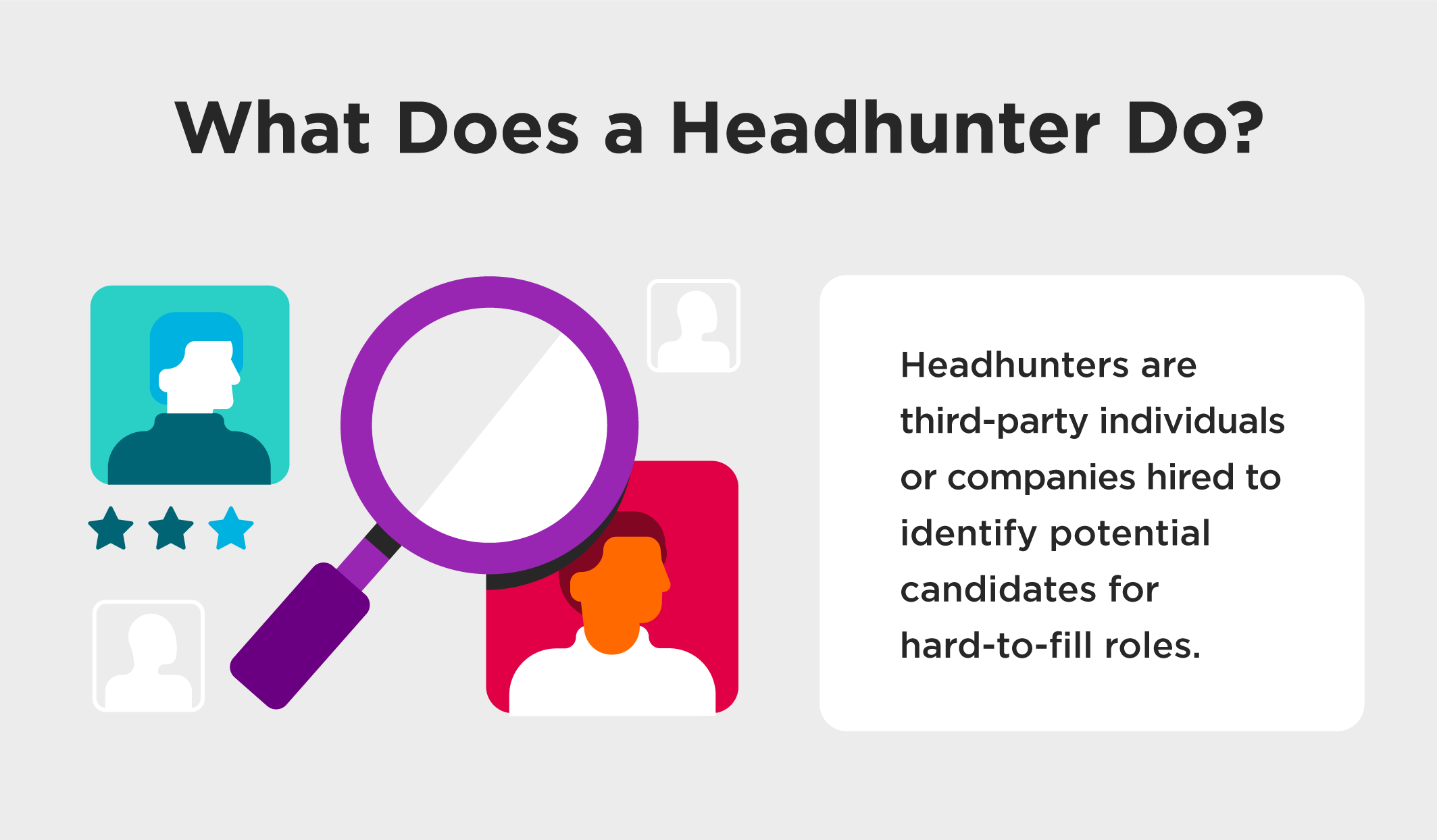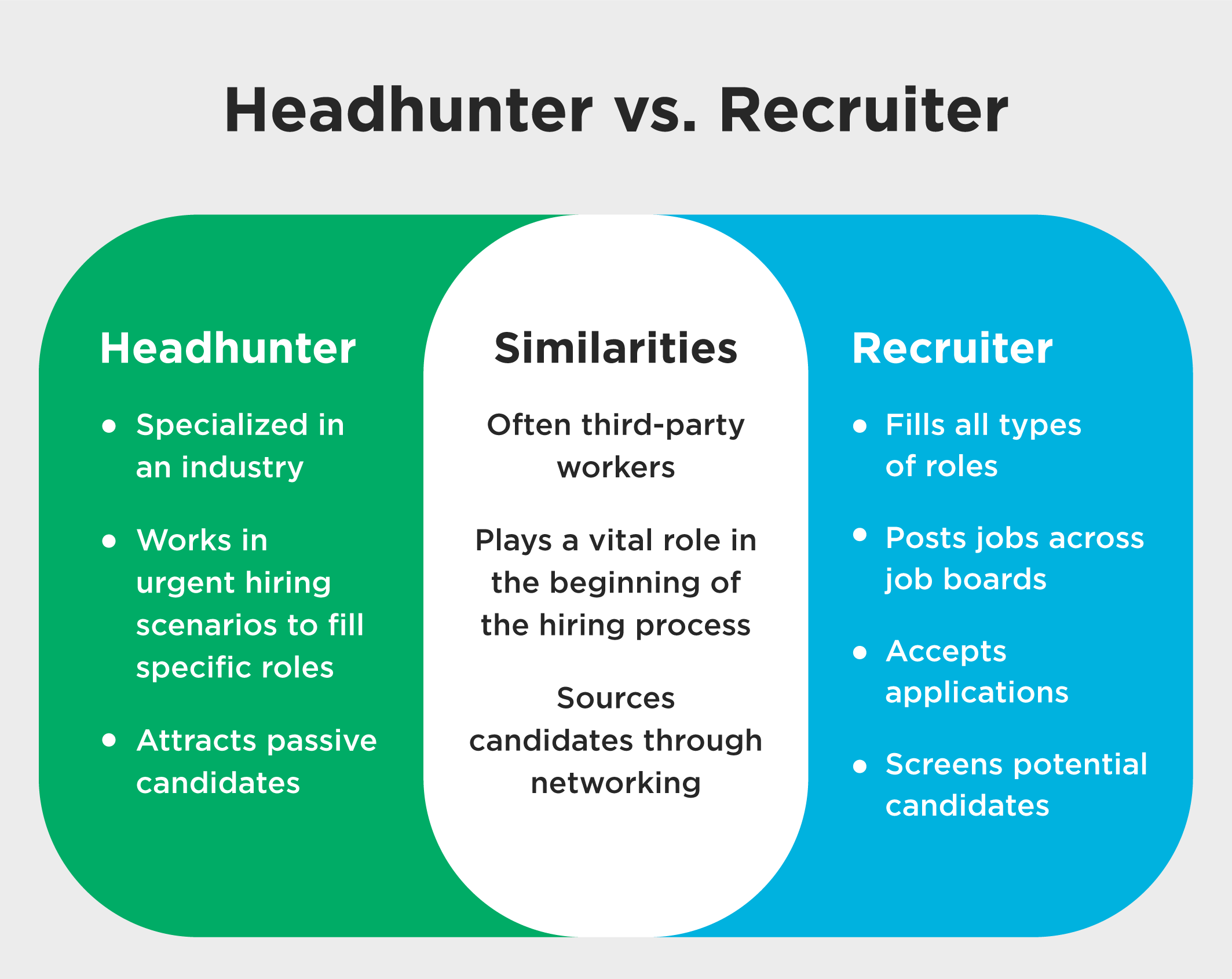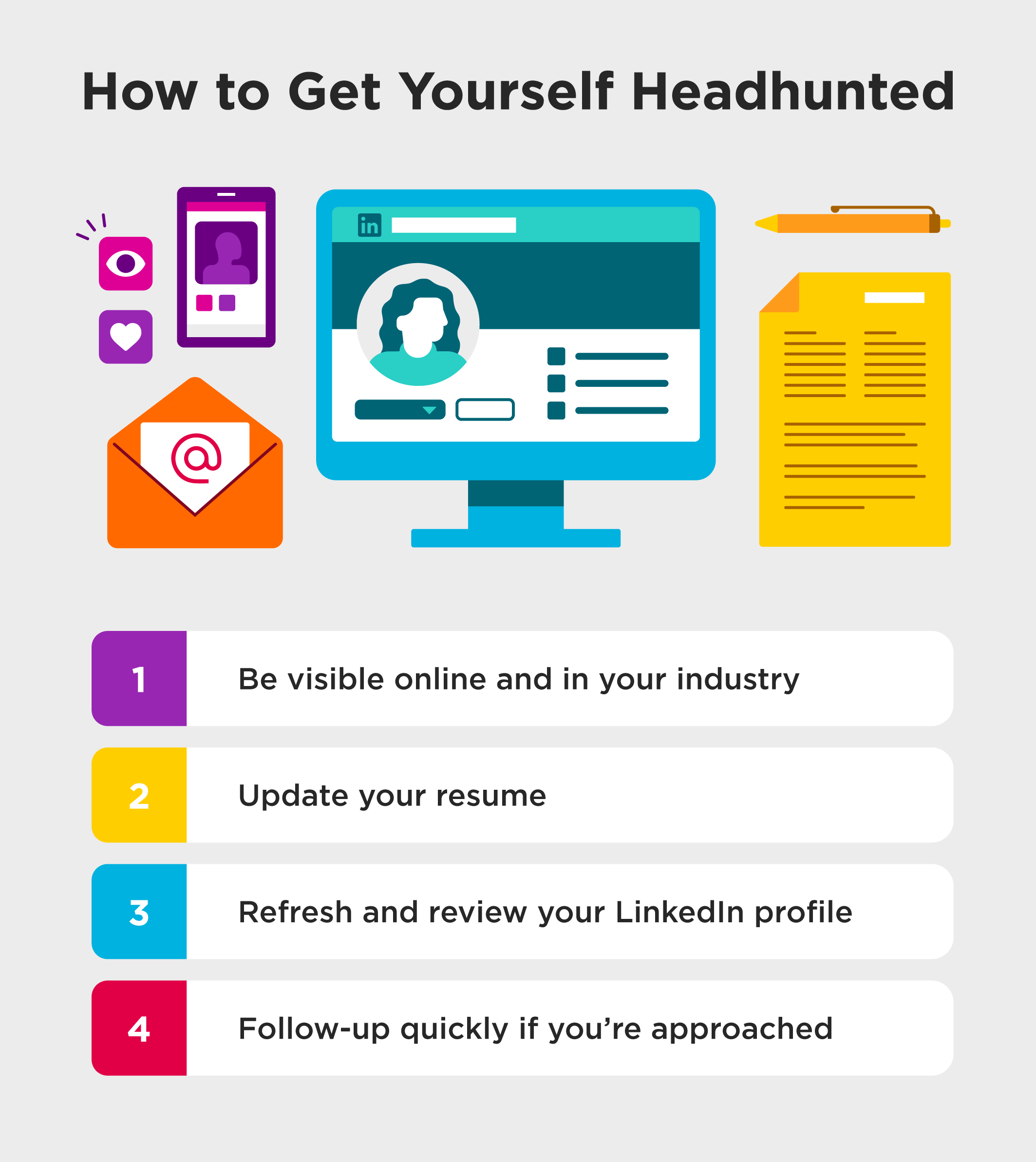What Is a Headhunter (and How Does Headhunting Work)?

quick answer
A Headhunter is a third-party professional that a company hires to find candidates, typically for senior to executive positions but also in urgent hiring scenarios.
In This Article
When you think of a Headhunter, what’s the first thing that comes to mind? Maybe it’s the scene from The Office when the Scranton team at Dunder Mifflin learns that Michael Scott has zero job leads after putting in his two-week notice.
He says, “At my level, you don’t just look in the want ads for jobs. You are headhunted.”
Headhunters help companies fill senior and executive positions with top-tier talent. As a working individual, you should understand headhunting and know what to expect if you ever get approached by a Headhunter during a job hunt.
Curious to learn more about what a Headhunter does and how to attract one during your next job search? Read on!
Headhunters are independent professionals businesses hire to find candidates for hard-to-fill roles. The hunt — sometimes called an executive search — is often for higher-level positions like CEO, President, and other C-suite and V-level roles. In other situations, Headhunters fill jobs of various levels that have been vacant for a while or when a company needs a quick replacement. Headhunters usually specialize in a particular industry, such as Tech, Health Care, and Finance.
Headhunter responsibilities:
In The Office, Michael Scott says, “Any good Headhunter knows that I’m available.” While his comment is a bit unrealistic for the position he’s in, it’s not a far-fetched idea in today’s digital age. Many Headhunters and Recruiters use LinkedIn to scope and contact prospects today. Before the professional networking site existed, Headhunters built databases of personal contacts and talent.

The terms “recruiting” and “headhunting” are frequently used interchangeably, but the roles are actually vastly different. Headhunters identify prospects, but their part ends after they pass candidates’ contact information onto the employers. They usually won’t screen candidates, conduct interviews, or participate in the final hiring decision.
Additionally, the positions they fill and how they work to fill them also differ. Recruiters aim to fill any open roles within a company, while Headhunters typically find candidates for specific positions that may be not actively posted on job boards.
Companies will often outsource both roles, but some companies hire recruiters internally. This also changes how the two positions receive compensation. Since Headhunters and Recruiters work differently, you may be more likely to work with one over the other during your job search.

For some companies, contracting a Headhunter might be more beneficial than working with a recruiter. Let’s dive into the benefits to understand why companies might use a Headhunter.
Not only are Headhunters experts on the job market, but many are specialized in specific industries. Because of this, Headhunters are particularly useful in saturated and niche markets.
Since Headhunters know their industry and the job market well, they excel at finding the best candidates to fit the roles they need to fill. Headhunters do this by poaching competitors’ current or former employees. And sometimes, these are passive candidates who may not be actively looking for a new career.
Headhunters can be especially helpful for remote companies since the pool of candidates is larger.
Senior and executive positions cost companies up to 213% of their salaries in turnover costs. Using a Headhunter to fill these jobs with qualified, well-fit candidates who are more apt to stick around can cut turnover costs. Additionally, relying on a Headhunter instead of HR frees up the internal team so they can spend time on other efforts.
Whether a current employee is leaving for a new opportunity or being let go, companies will look to fill a position that isn’t empty while not making the job opening public knowledge. In such a scenario, a Headhunter acts discretely to find potential replacements.
Hiring for senior positions can be time-consuming, but companies need to fill positions quickly. Headhunters work efficiently since they likely have a pool of candidates in their back pockets just waiting for their perfect position.
Headhunters get paid by the company that hired them. As a potential candidate, there’s nothing for you to pay if a Headhunter locates you.
There are two main ways a company may pay Headhunters:
Companies spend a lot of recruitment budgets on Headhunters, so it’s important to select someone who knows what they’re doing.
With so many recruiters and solicitors online today, it can be difficult to wade through the presented opportunities that might actually be worthwhile and which might be a scam. A good Headhunter should:
Additionally, a Headhunter shouldn’t ask for your current or past salary — it’s a major red flag. If someone approaches you with this question, they may try to lowball your salary. Instead, they should elaborate on the salary range for the position they’re looking to fill and ask if it matches your expectations.

Though companies typically hire Headhunters, job seekers can also benefit from their work, especially if switching careers or industries. There are a few things you can do to make yourself visible to a Headhunter.
Don’t be afraid to contact a Headhunter directly. Even if they don’t have a position for you at that moment, they can add you to their network and contact you if a better fit arises.
In the age of LinkedIn, you may be wondering if headhunting is as common as it once was. It’s true that most people will interact with recruiters more than Headhunters simply because of the difference in the jobs they’re hired to fill. Headhunters do still exist but are more niche than recruiters.
Since Headhunters operate in very specific hiring scenarios, working with one might be right for some job seekers, but not all. If you’re unsure if this avenue is right for you, meeting with a career counselor may be beneficial. Robertson’s workforce team can help you find a job that best fits your career goals.
Check out Robertson’s extensive list of Programs to see which best fits your career change.
In This Article
Once you take the first step, one of our Student Admissions Advisors will get in touch to better understand your goals for the future.
Apply Now